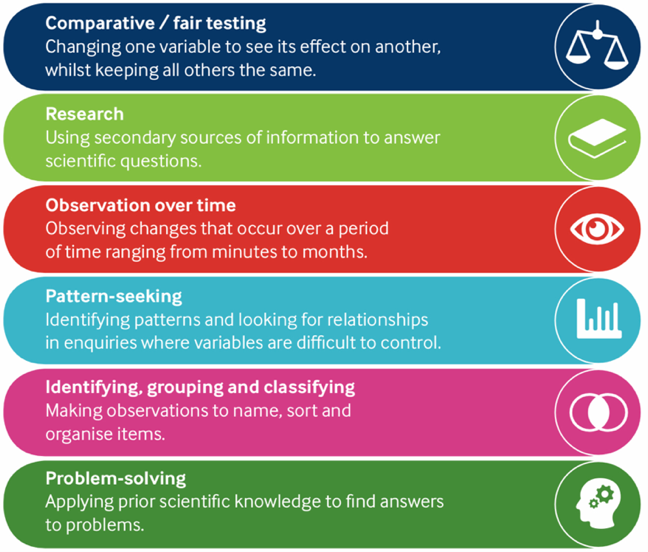Science
One of the key drivers of our curriculum is the idea of discrete subject quality. We therefore teach science as a discrete subject and learners have two hours of science on the timetable each week. If you would like to know more about the content of each science unit, please look at the curriculum and handbook documents at the bottom of this page.
How is our curriculum structured?
- EYFS science is taught as part of our EYFS curriculum and repeats each year.
- KS1 science is taught on a 2 year cycle so children may encounter a particular unit in year 1 or year 2, depending on the year they join.
- KS2 science is taught similarly, but with a 4 year cycle.
How do we build progression within a 2 or 4 year non-linear cycle?
- Objectives from NC have been put together into EYFS, KS1, LKS2 and UKS2.
- Progression comes from layered objectives within the same unit (which are repeated 2 years later). For example learning the basic parts of the digestive system (LKS2 objective) and describing the process in which nutrients and water are transported (UKS2 objective) might occur in the same unit. In our curriculum, children are exposed to the learning of both in a single unit but teachers achieve progression using our mixed age progression guide. The same combination of objectives occurs again 2 years on in the cycle and in a different unit.
- This means learners have the opportunity to cover a concept (e.g how water is transported through the body) in more than one context, spacing learning over a period of time. The learning theories which support this approach are those which look at spaced repetition and interleaving of concepts.
- Progression also occurs within disciplinary knowledge and although children are working on the same unit, teachers have different disciplinary expectations of different aged learners.
How do we teach science?
Our Science curriculum teaches the 6 types of Science enquiry set out by the PSTT. Each type of enquiry is shared with the children in their learning and on our classroom science displays. This enables children to make procedural links between units of study and build on their skills as scientists. Progression is set out for enquiry in the disciplinary knowledge progression section of our curriculum document and more detail about the skills can be found in appendix 1. Our Science units are based around a real life context or problem which gives purpose to learning and helps children to make connections between objectives and experience.

